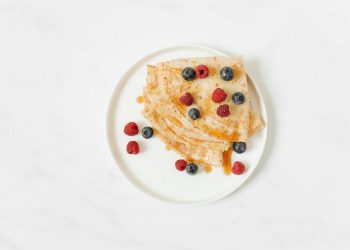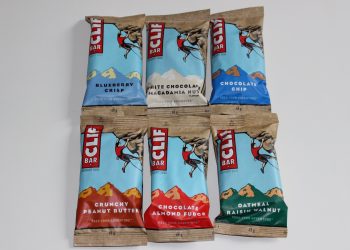Bagels are a popular breakfast option enjoyed by many people, whether they follow a vegan diet or not. However, for those adhering to a plant-based lifestyle, the question of whether bagels are vegan arises. It’s essential to understand the ingredients commonly found in bagels and how to determine their vegan status.
Key Takeaways:
- Bagels can be a plant-based breakfast option for vegans, but it depends on the ingredients and toppings used.
- Basic bagel ingredients like flour, yeast, salt, and water are typically vegan-friendly.
- Some bagel recipes or store-bought options may contain non-vegan ingredients such as honey, eggs, milk, or L-cysteine.
- When purchasing bagels, it’s crucial to read the ingredient labels and look out for non-vegan items.
- Making your own bagels at home allows you to have complete control over the ingredients and experiment with various vegan flavors and textures.
Vegan vs. Non-Vegan Bagels
When it comes to bagels, the basic ingredients used in their dough make them typically vegan-friendly. The traditional combination of flour, yeast, salt, and water forms the foundation of a classic bagel recipe. These basic bagel ingredients, simple as they may be, ensure that bagels can be enjoyed as part of a vegan diet.
However, it’s important to be aware that not all bagels are created equal in terms of their vegan status. Some recipes and store-bought options may incorporate non-vegan ingredients, including honey, eggs, milk, or L-cysteine. These additives can alter the vegan nature of bagels, making them unsuitable for individuals following a vegan lifestyle.
In addition to the dough itself, fillings and toppings also play a significant role in determining whether a bagel is vegan or not. While a plain bagel with no fillings or toppings is typically vegan-friendly, certain additions such as dairy products, meats, and eggs are non-vegan and should be avoided by those adhering to a vegan diet.
To help you navigate the world of bagels and make informed vegan choices, take a look at the table below for a clear breakdown of basic bagel ingredients and common non-vegan additions:
| Basic Bagel Ingredients | Non-Vegan Additions |
|---|---|
| Flour | – |
| Yeast | – |
| Salt | – |
| Water | – |
| – | Honey, eggs, milk, L-cysteine |
By being mindful of the ingredients used in bagels and their toppings, you can ensure that the bagels you choose align with your vegan dietary preferences. In the next section, we’ll explore how to ensure that the bagels you enjoy are indeed vegan and suitable for your plant-based lifestyle.
How to Ensure Your Bagel is Vegan
If you’re looking to enjoy the deliciousness of bagels while following a vegan lifestyle, there are a few key steps you can take to ensure that the bagels you consume are truly vegan-friendly. Whether you prefer to make your own bagels at home or purchase them from a store, these strategies will help you make informed choices and avoid any non-vegan ingredients.
Making Vegan Bagels at Home
Making your own bagels gives you complete control over the ingredients and ensures that they are vegan. You can experiment with various flavors and textures, creating a personalized vegan bagel experience. Here’s a simple recipe to get you started:
- Combine 4 cups of all-purpose flour, 2 teaspoons of instant yeast, 2 tablespoons of sugar, and 1 ½ teaspoons of salt in a mixing bowl.
- Add 1 ½ cups of warm water and stir until a dough forms.
- Knead the dough on a lightly floured surface for about 10 minutes, until it becomes smooth and elastic.
- Place the dough in a greased bowl, cover it with a clean towel, and let it rise for about an hour, or until doubled in size.
- Punch down the dough and divide it into 8 equal portions.
- Shape each portion into a round ball and use your finger to create a hole in the center of each ball.
- Place the bagels on a baking sheet lined with parchment paper and let them rest for about 15 minutes.
- Bring a large pot of water to a boil and preheat your oven to 425°F (220°C).
- Boil the bagels for 1-2 minutes on each side, then transfer them back to the baking sheet.
- Bake the bagels for 20-25 minutes, or until golden brown.
- Allow the bagels to cool before enjoying them with your favorite vegan spreads and toppings.
Now you can indulge in fresh, homemade vegan bagels that are free from any non-vegan ingredients!
Checking Ingredient Labels and Vegan Certification
When purchasing bagels from a store, it is crucial to thoroughly check the ingredient labels to ensure their vegan status. Look out for common non-vegan ingredients such as eggs, honey, L-cysteine, and milk. Remember to scrutinize both the bagel itself and any fillings or toppings that may accompany it.
In addition to ingredient labels, some bagel brands and products may carry vegan certification. This certification provides an extra level of assurance that the bagels are produced and handled using vegan practices, without any animal-derived ingredients or by-products.
If you’re uncertain about the vegan suitability of a specific brand or product, don’t hesitate to contact the manufacturer directly. They can provide you with the necessary information and help clarify any doubts you may have.

| Non-Vegan Ingredients to Avoid | Common Vegan Ingredients |
|---|---|
| Eggs | Flour |
| Honey | Water |
| L-cysteine | Yeast |
| Milk | Salt |
Can Bugles be considered a Vegan Snack Option?
Yes, Bugles can be considered a vegan snack option. However, it’s important to check the ingredients list to ensure there are no animal-derived products. In general, bugles are vegan as they contain no dairy or meat products. So, yes, are bugles vegan and suitable for a vegan diet.
Conclusion
In conclusion, bagels can be a delicious option for those following a vegan diet. Basic bagel recipes made with simple ingredients such as flour, water, yeast, salt, and sometimes vegetable shortening are generally vegan-friendly. However, it’s important to note that certain bagel recipes and store-bought options may contain non-vegan ingredients like honey, eggs, and milk.
For vegans looking to enjoy bagels, it’s essential to be mindful of the ingredients and make informed choices. By reading ingredient labels carefully and opting for bagels that are free from animal-derived additives, vegans can still savor their favorite breakfast treat.
There are also plenty of vegan fillings and toppings available to enhance the flavor and enjoyment of bagels on a vegan diet. From plant-based cream cheeses to fresh vegetables, there are endless possibilities to suit everyone’s taste preferences. By exploring different vegan options, vegans can create flavorful combinations that cater to their dietary needs.
So, whether you choose to make your own vegan bagels at home or carefully select store-bought options, it’s entirely possible to enjoy the timeless delight of bagels while adhering to a vegan lifestyle.
FAQ
Q: Are all bagels vegan?
A: Bagels can be vegan depending on their ingredients. Basic bagels made with flour, water, yeast, salt, and sometimes vegetable shortening are generally vegan-friendly. However, certain recipes or store-bought bagels may contain non-vegan ingredients like honey, eggs, and milk. It’s important to check the ingredients and choose accordingly.
Q: What non-vegan ingredients are commonly found in bagels?
A: Some bagel recipes and store-bought varieties may include non-vegan ingredients such as honey, eggs, milk, or L-cysteine. These ingredients are not suitable for a vegan diet. Additionally, certain bagel fillings and toppings like dairy products, meats, and eggs are also not considered vegan.
Q: How can I ensure that the bagels I consume are vegan?
A: There are a few ways to ensure the vegan status of bagels. Making your own bagels at home allows you to control the ingredients completely and experiment with various vegan flavors and textures. When purchasing bagels, read the ingredient labels carefully, looking out for non-vegan items like eggs, honey, L-cysteine, and milk. Some products may also have vegan certification, providing assurance of their vegan status. Contacting the manufacturer can also help clarify any doubts regarding the vegan suitability of a specific brand or product.















